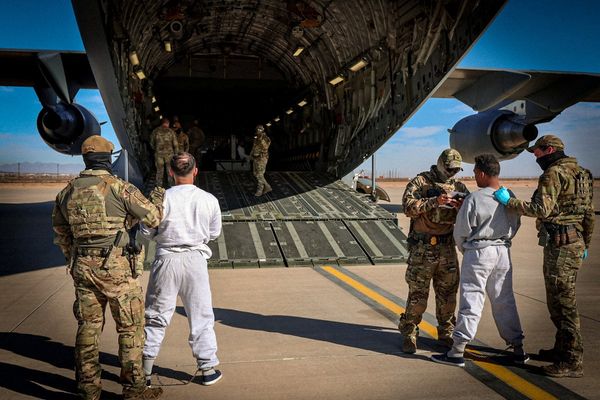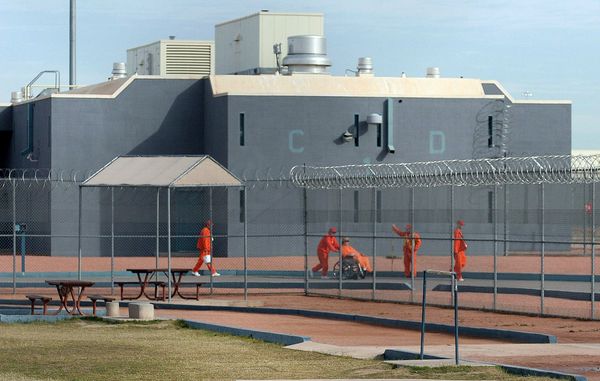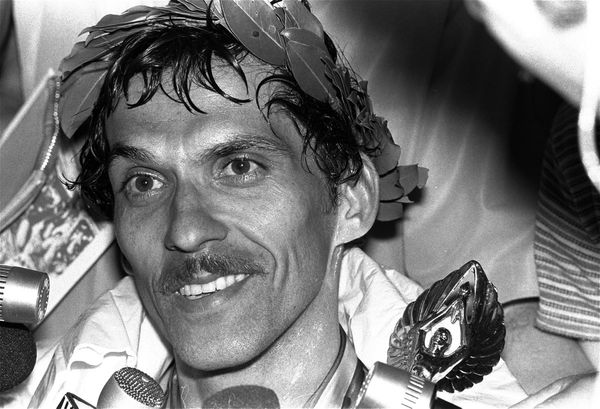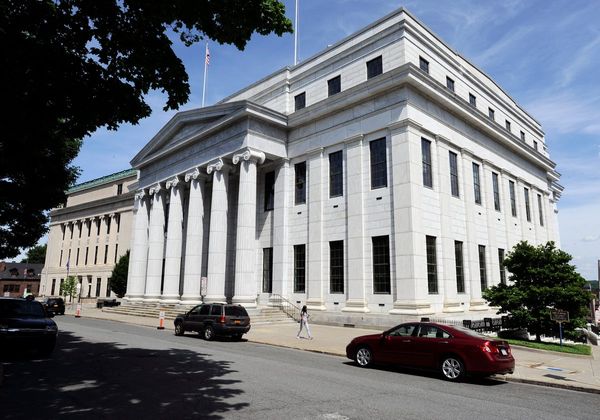It was the moment when Rishi Sunak’s faltering election campaign looked like it was close to breaking. Britain’s clearly wounded prime minister was forced to admit on Friday lunchtime that he had made “a mistake” in not participating in an international commemoration for the 80th anniversary of the Normandy landings – known in the UK as D-day – attended by Joe Biden and other world leaders at the American cemetery off Omaha beach.
Instead he had travelled back across the Channel early to record a television interview, which is not due to be broadcast until next Wednesday.
“These men made the ultimate sacrifice and you couldn’t even sacrifice a whole afternoon? Ken Hay, a 98-year-old D-day veteran, told us you let the country down. Is he right?” a television reporter asked, and Sunak’s eyes reddened. His voice became momentarily fragile and a campaign that he has tried to fight on national security was falling apart on its own terms.
He argued weakly that “the itinerary for these events was set weeks ago”, before he had even called the election.
D-day, the allied air and seaborne invasion of Normandy on 6 June 1944, is an essential part of the British national myth, a key aspect of the victorious six-year struggle against Nazi Germany in the second world war.
The landings mean different things to different nations: for the Americans it is the horrific battle to capture Omaha beach, for France the beginning of the liberation, while many other countries, notably Canada, played a significant part in a military operation that involved more than 150,000 soldiers.
Kings, queens, presidents and prime ministers are expected to attend memorial events, which take place on a grand scale every five years, to remember the fallen, the struggle to secure freedom in Europe, and to draw lessons.
Biden, speaking at the event that Sunak skipped, with Ukraine’s Volodymyr Zelenskiy present, committed to continuing American military support for Kyiv as it fights the Russian invasion. “To surrender to bullies, to bow down to dictators, is simply unthinkable,” he said.
The 80th anniversary was particularly poignant because so few living veterans are left, the youngest a couple of years short of 100. A few dozen, many in wheelchairs, made it to northern France, including 22 who travelled by ferry from Portsmouth, on Britain’s south coast, their number tenfold fewer than five years ago. Veterans were interviewed respectfully by broadcasters across the media, with more than 48 hours of coverage, while political campaigning was briefly toned down.
Although Sunak participated alongside King Charles in a day and half of British commemorations, first in Portsmouth and then in Normandy on the morning of 6 June, he did not join Biden and other world leaders a couple of hours later at an international event. He was absent from photos showing Biden with France’s Emmanuel Macron, Germany’s Olaf Scholz and David Cameron, the UK foreign secretary, standing in for Sunak.
Meanwhile his rival Keir Starmer, the Labour leader, who is on track to win the election, attended and was photographed with Zelenskiy, looking already like a prime minister.
As images of Sunak’s non-attendance began to circulate on Thursday evening, it was other Conservatives, traditionally the party closest to the UK’s military, who were particularly distraught. “I want to put my head in my hands,” said the conservative commentator Tim Montgomerie on a BBC talkshow, not quite able to believe that Sunak had forsaken the international commemoration for a television interview. It was “political malpractice”, he said.
Sunak had begun the election campaign in late May about 20 percentage points behind in the opinion polls on course for heavy defeat. His hope had been stage to a comeback by reinventing himself in traditional conservative terms. One of Sunak’s first moves, a surprise, had been to promise to reintroduce a version of national service, abolished in 1960, in which 18-year-olds would be required to undertake military training or community service for a year.
Labour could not quite believe the political gift that had been presented. Starmer’s party, often accused by the Conservatives of being soft on national security, was able to contrast Sunak’s rhetoric with reality. John Healey, Labour’s defence spokesperson, said: “Given that the prime minister has been campaigning on the idea young people should complete a year’s national service, what does it say that he appears to have been unable to complete a single afternoon of it?”







